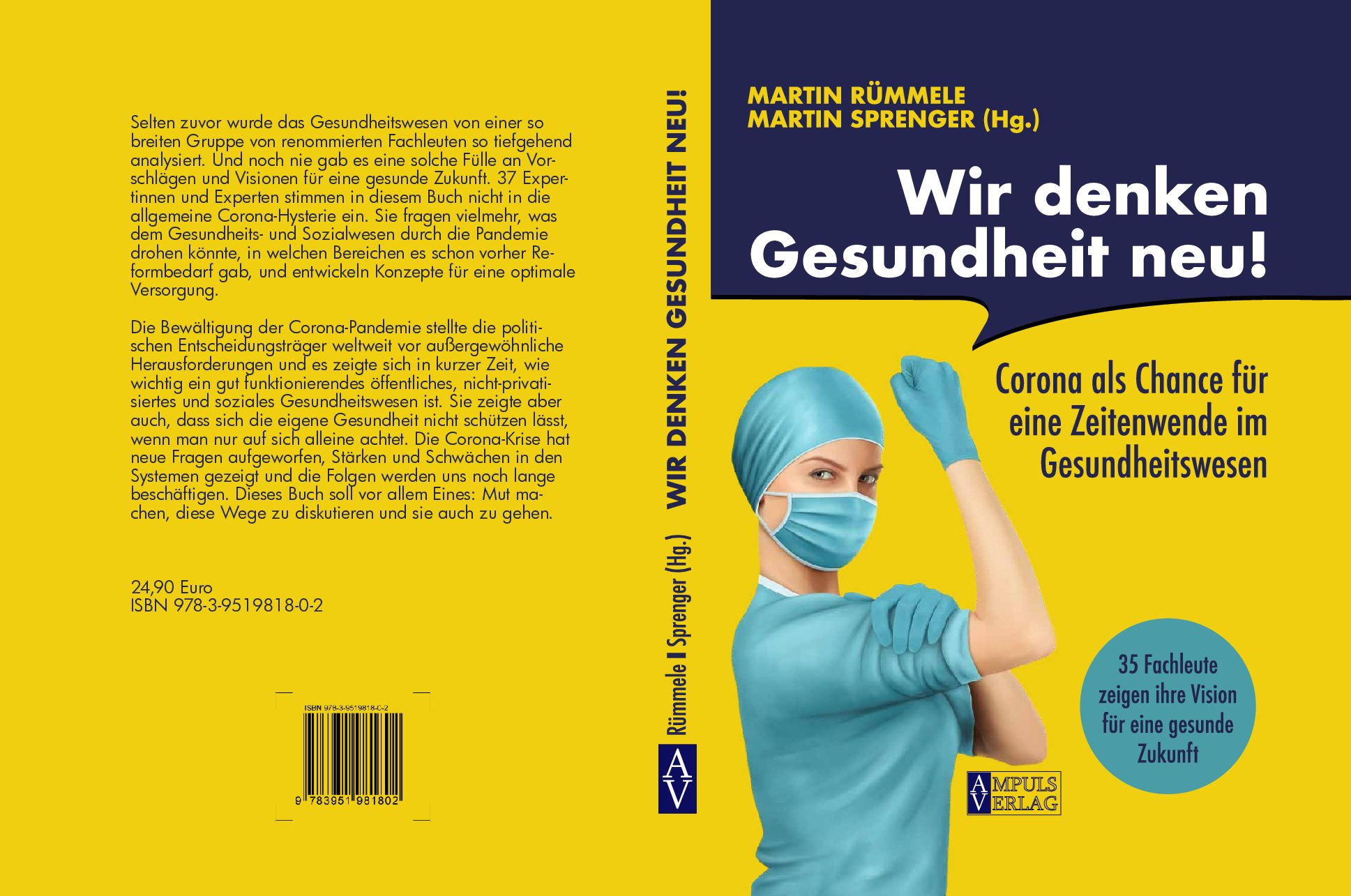Experts see chances for a paradigm shift in the health care system and have published a book. The AIHTA sheds light on the research, production and pricing of drugs.
Vienna (Austria), 9. June 2020. 37 experts of the Austrian health care system are already thinking further ahead than the next wave of infection. They see the limits of the health care system experienced during the Corona crisis and the reactions of the state as an opportunity to fundamentally improve smouldering deficiencies in our health care system. They have therefore published an anthology that presents this opinion in a well-founded and clear manner. Not only does it call for a rethinking of the planning of medicine supply and prevention measures, but also it presents opportunities, possibilities and approaches to solutions. The contribution of the Austrian Institute for Health Technology Assessment (AIHTA) sheds light on the research, production and pricing of drugs and calls for a new regulation of this commercially-driven sector.
The Corona crisis has brought to light many strengths, but also weaknesses of our health systems. It showed that systems based on strong public funding and management were initially successful in providing adequate protection for the sick and for the key heath care personnel, be it nursing staff or physicians. The fact that about EUR 8 billion of public funding for research on COVID-19 interventions was made available worldwide within a short period of time is also one of these strong points. At the same time, however, very fundamental weaknesses have become apparent, leading to the vulnerability of the population and their care. These issues are discussed in the book “Rethinking Health! Corona as a Chance for a Turning Point in Healthcare” [Wir denken Gesundheit neu! Corona als Chance für eine Zeitenwende im Gesundheitswesen] and discussed by 37 experts in a solution-oriented fashion. The Austrian Institute for Health Technology Assessment (AIHTA) addressed the central topics of drug research, production and pricing.
Profit priority
„Our current system of research funding in the healthcare sector places a strong priority on commercialisation – and less on the actual burden of disease in society“, says Priv. Dr. phil. Claudia Wild, Director of AIHTA. „This has led to a strong funding of research into the management of non-communicable diseases caused by life-style and civilisation – and a neglect of research into communicable diseases, despite their enormous risk and damage potential“. In her book contribution, „Die Pharmabranche“ („The Pharmaceutical Sector“), co-authored with Christoph Strohmaier and Gregor Götz, Dr. Wild then goes on to explain further weaknesses in our health care system that have now become manifest. For instance, she discusses the logistical dependency on low-wage countries such as China and India, which leads to supply bottlenecks and medicine shortages in times of high demand.
In their contribution, the authors call for a radical rethinking of the way medicines are produced and sold. In the aftermath of the Corona crisis they see – despite the power of strong lobbying groups –for the first time the chance to achieve this. In their view, the myth that only the private sector is capable of delivering technological success in the development of drugs and medical products has been dispelled. After all, the public sector is already largely responsible for progress in the research of new drugs. However, while the risk of failure in publicly-funded basic research is high, the commercial profits at the end of this cost-intensive path are privatised and reaped by pharmaceutical companies. This is where the Covid-19 pandemic can cause a change of direction.
Change of course
To facilitate this reorientation they then present concrete suggestions and ideas. One example is envisaging the possibility of awarding public research and development grants only to those who are prepared to accept predefined conditions for the benefit of the general public. In the simplest case, this is a commitment to providing public access to all results of the research funded in this way (Open Science, Open Patent Pool). The promise of license-free availability of all health-related products created by the publicly-funded activities or a new regulation of patent protection (flexibilisation) are likewise being considered.
The authors are optimistic that the first approaches of their proposals are already being implemented in several current Covid-19 initiatives: In some cases, goals and milestones are agreed upon before funding is granted and even the conditions of market access for effective drugs from the research activities are partly determined at the outset.
In regard to their points of criticism and approaches to solutions, the AIHTA experts and their fellow authors are in accordance with the UN and the EU, which are increasingly debating an unbundling of research and development costs from the final prices of the drugs or even a complete unbundling of the work steps in the value chain. The evidence-based analyses of AIHTA will be able to contribute valuable information to this debate, which will also be of importance for the national health care system in Austria.
Sprenger, Martin and Martin Schriebl-Rümmele (eds.): Wir denken Gesundheit neu! Corona als Chance für eine Zeitenwende im Gesundheitswesen. Unteraichwald: Ampuls Verlag, 2020. ISBN 978-3-9519818-0-2
| Austrian Institute for Health Technology Assessment Priv. Doz. Dr. phil. Claudia Wild Director Garnisongasse 7/20 1090 Vienna T +43 / 1 / 236 81 19-12 E claudia.wild@aihta.at W http://www.aihta.at |
| Press contact: PR&D – Public Relations for Research & Education Dr. Till C. Jelitto Mariannengasse 8 1090 Vienna T +43 / 1 / 505 70 44 E jelitto@prd.at |

